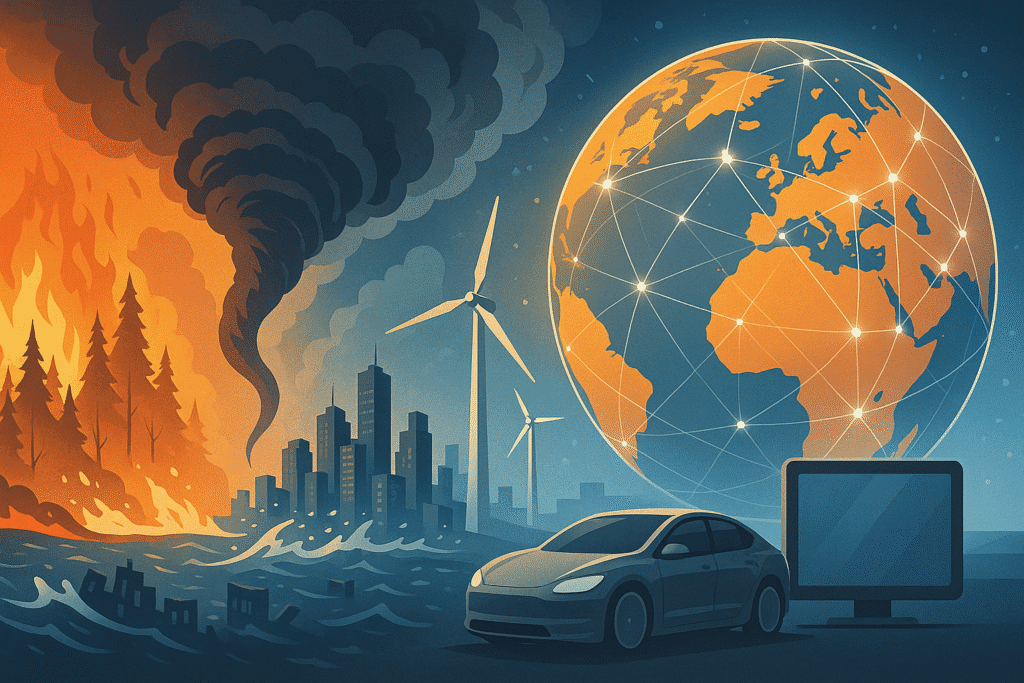Tragic Floods in Brazil: A Wake-Up Call for Preparedness
At the end of June 2024, Brazil faced a devastating natural disaster when the state of Rio de Janeiro was hit by severe flooding following days of torrential rainfall. Rivers overflowed, inundating thousands of homes and leading to at least 150 confirmed deaths. Local rescue teams worked tirelessly under perilous conditions to save those stranded by the floodwaters. Many residents were forced to seek refuge on rooftops or in makeshift shelters as entire neighborhoods were submerged. As emergency aid began arriving from neighboring countries, the full scale of the destruction became apparent.
The floods have sparked alarm about Brazil’s preparedness for such extreme weather events. While Rio de Janeiro has faced flooding in the past, the intensity of this disaster raised questions about the country’s ability to cope with increasingly frequent and severe climate-related events. Experts are calling for more robust infrastructure and disaster response strategies to mitigate the effects of such catastrophes in the future. This disaster serves as a stark reminder of the growing vulnerability of nations to climate change, particularly in regions prone to extreme weather patterns.
China’s Chang’e 6 Mission: A Milestone in Space Exploration
On the other side of the world, China made history with its Chang’e 6 mission, which achieved a groundbreaking milestone in space exploration. On June 24, the Chang’e 6 lander successfully returned lunar samples from the far side of the Moon, making it the first spacecraft to retrieve materials from this previously unexplored region. The far side of the Moon, which is shielded from Earth by the Moon itself, had never been studied in detail until this mission.
This achievement is a major scientific breakthrough, providing researchers with invaluable insights into the Moon’s composition and the potential for future human habitation. The samples collected by the Chang’e 6 mission are expected to enhance our understanding of the Moon’s geological history and its suitability for future exploration and settlement. The success of the mission demonstrates China’s growing capabilities in space exploration and reinforces the role of technological advancements in shaping the future of scientific discovery.
The Contrast Between Crisis and Innovation
The juxtaposition of Brazil’s devastating floods and China’s remarkable lunar success highlights the complex and often contrasting forces shaping the global landscape. On one hand, climate change continues to exacerbate the frequency and severity of natural disasters, underscoring the urgent need for sustainable practices, climate adaptation strategies, and resilient infrastructure. On the other hand, advancements in technology, like the Chang’e 6 mission, offer hope and demonstrate the potential of human ingenuity to overcome challenges and explore new frontiers.
While technological breakthroughs hold the promise of solving some of humanity’s greatest challenges, experts warn that more immediate and concerted action is needed to address the root causes of climate change. Reducing carbon emissions, shifting toward renewable energy, and developing sustainable infrastructure are critical steps in safeguarding vulnerable communities from future disasters. The world faces a dual challenge: managing the risks posed by a rapidly changing climate while simultaneously fostering innovation that can drive progress and sustainability.
Looking Ahead
As the world grapples with the impacts of climate change and celebrates scientific achievements, it is clear that a balanced approach is required. The flood disaster in Brazil serves as a poignant reminder of the work still to be done to protect communities from climate-related impacts, while the Chang’e 6 mission inspires hope for the future and exemplifies the potential of human technology and creativity. In the coming years, addressing climate change through both mitigation and adaptation strategies, alongside continued technological progress, will be essential to shaping a resilient and sustainable future.
